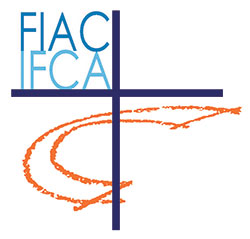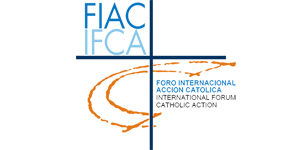Final document
Representatives from Thailand, Philippines, Myanmar/Burma, India, China, Laos, Romania, Burundi and Italy, met in Bangkok, Thailand, at Camillian Pastoral Care Center (81/3 Luangpang Khumthong Latkrabang) from 22- 25 March 2012, for the first Asian Continental Meeting of IFCA – International Forum of Catholic Action. The theme of the meeting was “50 years of the Second Vatican Council – Catholic Action, a gift from the Spirit: Commitment of the Laity in the Church and in Society for a more humane world”. The first part of the meeting focused on the on-going situation in Asia and challenges for lay people at the continental and at a global level, with the two opening resources of Sandro Calvani: “For a more human world”: values, choices and areas which call for Christian lay people’s attention”, and of H.E Mgr Felix Machado, Archbishop-Bishop of Vasai, India: “Evangelisation in Asia in the third millennium: challenges and proposals for the continent and for the world”. The deliberations took place in an atmosphere of prayer, interspersed with liturgies, and in fraternal and friendly exchanges. The Brothers of Taize animated one of the evening prayers. The second part of the meeting focused on the VEC II and Laity, in which the participants shared their experiences as Laity in the Church.
On the second day a brief presentation of the Catholic Action, according to the documents of VEC II, was made; four countries, which were represented and where there is Catholic Action in progress, communicated their experiences to the participants, who were then able to reflect deeper on the two inputs: one by H.E Mgr Domenico Sigalini, Ecclesiastical Assistant of IFCA and of the Italian Catholic Action, who presented the Catholic Action as a gift of the Spirit to the church, and the other by Ms Oana Tuduce, National President of Catholic Action in Romania, who presented Catholic Action in VEC II, Christifideles Laici and the other Church’s Teaching. The experiences of the participants from various countries on different aspects, such as, life’s Project: formation, testimony, mission and at the school of social doctrine of the Church: justice, peace, common good, enriched one and all.
The last day was dedicated to the presentation of IFCA and to the drafting of this document in order to define the further steps once the meeting is over, especially regarding the formation of the laity in the Church, the youth, organisation of the Catholic Action in Asia on the diocesan level for the new evangelization in the light of the Year of Faith, proclaimed by Benedict XVI from October 2012 to November 2013.
The meeting reached its culminating point, namely, to share the common identity of the Catholic Action as it has been described in the Apostolicam Actuositatem (A.A. 20) and in the Pontifical Magisterium, after the Second Vatican Council.
Among the various forms of the lay apostolate which have a particular relationship to the hierarchy, the Synod Fathers have singled out various movements and associations of Catholic Action in which “indeed, in this organic and stable form, the lay faithful may freely associate under the movement of the Holy Spirit, in communion with their bishop and priests, so that in a way proper to their vocation and with some special method they might be of service through their faithfulness and good works to promote the growth of the entire Christian community, pastoral activities and infusing every aspect of life with the gospel spirit”, (Christifideles Laici, n. 31)
Recommendations
– Good governance and transparency in our associations and in areas of lay formation
– Working for communion, both within churches and ecclesial movements
– Working together with other Catholic organizations, e.g. WUWCO
– Coordination for CA at a parish level
– Encourage the study of the documents of the Church
Perspectives and further steps
a) Catholic Action
– Consensus was arrived about the fact that there are activities similar to the Catholic Action in some measure in all the Asian countries which were represented at the meeting; however, that is not to be formally considered CA. So, next step is to communicate with bishops and Episcopal Conferences, to explore possibilities of strengthening the link with IFCA and to have “formal group of Catholic Action”, starting from the basic ecclesial communities in the local churches.
– Membership: define and categorize concrete ways of memberships to Catholic Action
– Send a letter to the bishops and to the Episcopal Conferences of the participating countries asking them if there are in their dioceses some form of Catholic Action that could become “observer” or “full members” of IFCA
– Start with concrete formative proposal for the groups of Laity at the parish level.
– Create a small working group of CA leaders to work on the follow up of CA in Asia
– Share resource materials and (power point) presentations to promote CA
– Make available formative modules on CA
b) Working together
– Have a common platform to share and exchange, in order to talk with one voice as Catholic Church, including its Lay members.
– Deepen the link with lay people in China
– Encourage networking between lay people and associations in the South East Asia and Pacific region for a mutual support and coordination regarding lay formation: Philippines, Myanmar, Korea, Timor East, Papua New Guiney, Malaysia, Indonesia, Australia, etc.
– Find new and concrete ways to dialogue with followers of other religions and to deal with religious fundamentalism (e.g. in India).
I Continental Meeting in Asia
50 YEARS AFTER THE SECOND VATICAN COUNCIL. Catholic Action, a gift from Spirit; Lay people’s commitment in the church and in the society for a more humane world •Bangkok, 22-25 March 2012
- rsris_slide_link:
- wps_subtitle:
- pl_view_post:
- 1106








